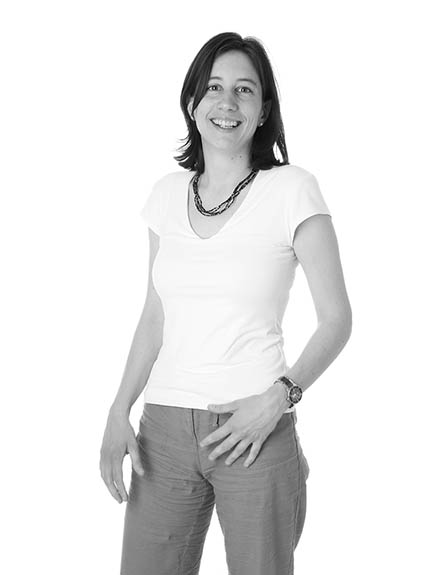| marie-hélène le ny |
|
photographist |

|
“My doctoral research in applied mathematics largely focussed on the controllability of systems of partial differential equations. As an adolescent I had been more comfortable with the arts and drawing, but in Year 11 I realised that amidst all my schoolmates who hated maths I actually coped pretty well and enjoyed it, so I chose to take a scientific baccalaureate. Above all you shouldn’t tell yourself, “That’s not for me!” You should discuss it with your teachers. I like the fact of having a fairly straightforward line of reasoning. In maths you study equations that come from different environments and govern the evolution of certain variables – it might be the distribution of temperature in the body, for example. If you allow an equation to evolve freely, it will reach a certain state at a given moment. The controllability comes from playing the system a bit, and getting the equation to the desired state at a moment you have chosen.
We
are interested in models of heartbeats, and are trying to build
models to take account of the existing observations. On the basis
of our observation of MRI images of patients, we are trying to
integrate data relating to these cardiac MRI scans so as to offer
a realistic model of heartbeats – or cardiac cycles –
that will take account of parameters that are specific to the
patients in question. When we have a reference system for the
case of a healthy patient, on the basis of our observation of
the cardiac MRI of another patient we can determine the area
in which there might be a heart attack. There are currently a
lot of mathematical applications in the health field. The most
important thing is not to close any doors yourself – if
you want to do something you should try to do it, make progress
and little by little discover the questions that really interest
you!” |
||
|
Karine Mauffrey Post-doctoral student, INRIA - M3DISIM |
|||
|
|
|
|